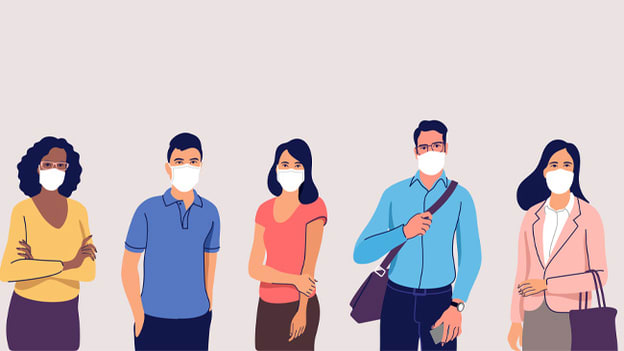COVID-19: The 'bold' new world

It has emerged as something totally new, unprecedented and no one has any idea how it will play out. But one thing is for sure. Nothing will ever be the same again.
What William Knoke envisioned in the 20th century for this century when he wrote the book with the same title, certainly seems to be becoming a reality. He spoke about communication would change the way people worked, but I am sure he did not anticipate a pandemic to give reality to his vision. The year 2020 will go down in history as the most-awaited and feared. It is already being referred to as the new AC (After Covid)
Work culture as we know it will transform. Change is inevitable, and this year it has forced all organizations big or small to either deal with it or sink. Organizations that are agile and adaptable, are the ones that will prevail. People who had been advocating work from home for so long are finally vindicated. Yes, it is possible to work without being present at a brick and mortar workplace. Employees are becoming more productive working from home than ever before. It is challenging the paradigm that we all need to be together at the same place for an organization to work. The service industry is the only one that has emerged somewhat unscathed because it is able to leverage technology for remote working. The normal workday now consists of virtual meetings and WhatsApp calls.
All the predictions and forecastings are going out the window. No one could have predicted the disaster that is in front of us. HR needs to rely on human touch in these disjointed virtual environments and reassure employees that they are there to help. The purpose of HR is to make employees feel safe and comfortable so that they can contribute positively to the organization and not worry about whether their job will be there. The inclusive culture where the employees are treated more and more like customers first is emerging. In order to respond to the changing environment, employees are getting together to help each other learn, upskill, and reskill themselves.
The flip side is, the virtual workplace will also make people feel alienated. If this goes on for a long period of time, people would have to adjust to working without the social interaction among the colleagues buffering the stress. It can impact the well-being of the employees. Moreover, employees feel that they end up working longer hours compared to when they were physically in the office. With remote working, people end up working 24X7 as the “office time” is not observed.
Although this will not continue post lockdown, as today no one can go out so the assumption is you will be available when I need you, later when life resumes, distinct timelines will need to be followed and other persons’ free time would be taken into account. The way we work in teams will undergo a transition as we would now need to anticipate others’ desires in an asynchronous environment. Team members would need to be more forthcoming about their requirements as most of the small social cues are missing. Thus an empathetic culture would emerge where the boundaries need to be respected and the employees are enabled to become more open in expressing their needs. This would be nurtured so as not to take advantage, but help them in managing their priorities.
The boundaries between the physical workspace and virtual are getting blurred. With the crisis due to Covid-19 when people are unable to move from their homes, organizations realis that remote working is a really useful option which saves the employee commute in traffic making him more productive and offices do not need as much space. Family coming on virtual meetings is now accepted as the norm rather than embarrassment. The facade of formality has been broken and care would be required to make employees feel less stressed and more open.
As we look at learning to live with COVID-19 until a vaccine is developed, organizations will become more flexible in allowing people to work from home in the future and would enable them to do so comfortably. New HR policies that would define the number of hours, timings, off days, sick leaves, etc. will need to be defined to give clarity to the employees post lockdown. Most Organizations have already started thinking on these lines and have formulated strategies. Some have allowed employees to work from home for a year and some forever. But before we think of these as good, we need to keep in mind that man is ultimately a social animal, and steps should be taken accordingly.














